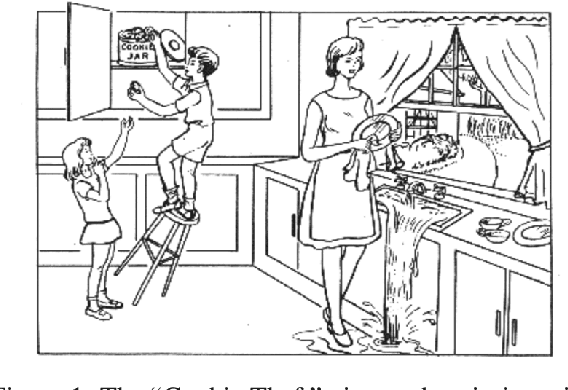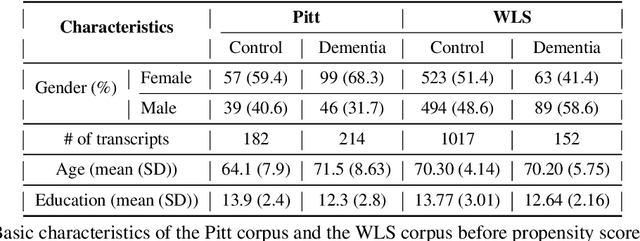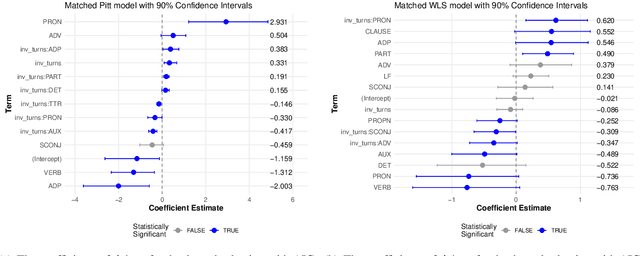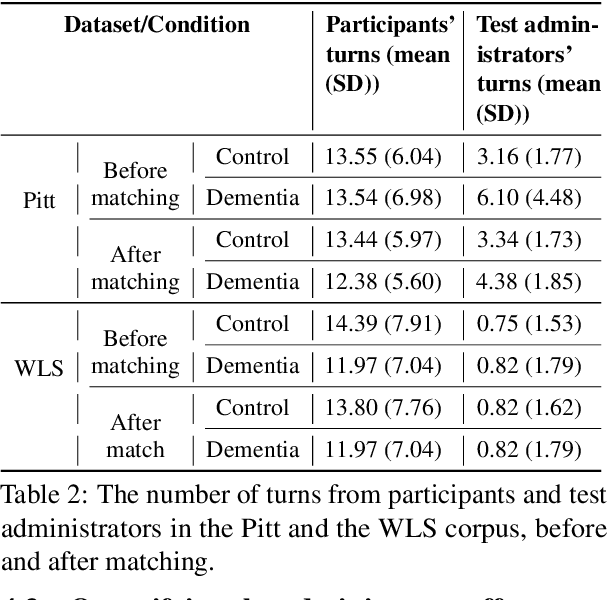"Is There Anything Else?'': Examining Administrator Influence on Linguistic Features from the Cookie Theft Picture Description Cognitive Test
Paper and Code
Mar 25, 2025



Alzheimer's Disease (AD) dementia is a progressive neurodegenerative disease that negatively impacts patients' cognitive ability. Previous studies have demonstrated that changes in naturalistic language samples can be useful for early screening of AD dementia. However, the nature of language deficits often requires test administrators to use various speech elicitation techniques during spontaneous language assessments to obtain enough propositional utterances from dementia patients. This could lead to the ``observer's effect'' on the downstream analysis that has not been fully investigated. Our study seeks to quantify the influence of test administrators on linguistic features in dementia assessment with two English corpora the ``Cookie Theft'' picture description datasets collected at different locations and test administrators show different levels of administrator involvement. Our results show that the level of test administrator involvement significantly impacts observed linguistic features in patient speech. These results suggest that many of significant linguistic features in the downstream classification task may be partially attributable to differences in the test administration practices rather than solely to participants' cognitive status. The variations in test administrator behavior can lead to systematic biases in linguistic data, potentially confounding research outcomes and clinical assessments. Our study suggests that there is a need for a more standardized test administration protocol in the development of responsible clinical speech analytics frameworks.
 Add to Chrome
Add to Chrome Add to Firefox
Add to Firefox Add to Edge
Add to Edge